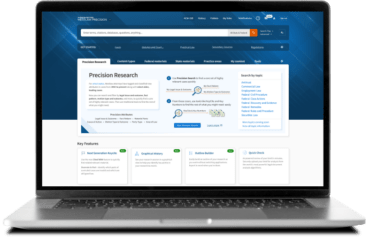Top law firms are announcing associate salary increases, but raising salaries isn't the only way invest in the success of legal talent
The post-COVID hiring frenzy at US law firms may have leveled off, but it’s still a competitive market for legal talent. Top US law firms are announcing associate salary increases. Midsize and smaller firms are hiring even more than the larger firms as they look to meet demand from corporate clients moving down market, according to the 2024 State of the Legal Market report from the Thomson Reuters Institute.
But raising salaries isn’t the only – or even the best – way to attract and retain top talent. Implementing modern technology like generative artificial intelligence (AI) helps firms improve productivity, aid in professional success, and create outcomes and a work environment that impresses colleagues and clients.
Jump to:
| Salary doesn’t drive satisfaction |
| Technology drives satisfaction |
| AI-Assisted Research on Westlaw Precision |
Salary doesn’t drive satisfaction
Firms looking to attract and retain top talent have more levers to pull than just raising salaries. In fact, the Thomson Reuters Law Firm Stay-Go Report found that associates ranked many factors above compensation when it came to reasons for having a favorable opinion of their firm. These included the people they work with, their firm’s culture, the quality of work they do, and flexible working practices.
Legal professionals want to be sure they’re paid what their work is worth, but they value other things as well. They want to enjoy their work and have the flexibility to live their lives.
It turns out that law firms are looking for more or different than they did in the past as well. According to a Robert Half report, there is increased demand for specialized skill sets. “Small-to-midsize law firms seek skilled legal candidates with three to seven years of experience,” writes Jamy J. Sullivan, J.D.
Further, firms are willing to pay extra for leadership and management experience, research and information analysis, and technical skills. Sullivan notes that “Perhaps the most eye-catching statistic is that a full third of managers (33%) are increasing pay for artificial intelligence and machine learning skills. These competencies, barely on the radar a few years ago, underscore how technological advancements are reshaping the legal field, with tech-savvy legal professionals becoming invaluable assets.”
Technology drives firm and lawyer satisfaction
When law firm leaders look at drivers of retention and satisfaction, they also must consider how they are training their newer associates, utilizing their more senior practitioners, and making cultural or operational changes without disrupting client satisfaction.
AI-driven tools can help. For instance, AI can help attorneys streamline the more tedious parts of their work so they can focus on higher-level legal strategy and drafting.
Further, some firms worry about how they will train their new associates without the hours and hours of document review for discovery or due diligence. In fact, using generative AI to streamline these tasks can create more teaching moments between them and more senior lawyers who help them evaluate the quality of AI output.
That can lead to happier associates and mentors in the long run.
AI-Assisted Research on Westlaw Precision
Westlaw has been using AI to improve the legal research experience for decades. The new AI-Assisted Research feature is the first to incorporate generative AI, and it is dramatically changing how legal researchers work.
AI-Assisted Research on Westlaw Precision helps people understand how the law applies to their matter faster so they can devote more of their time to case strategy, drafting, and client interactions. Researchers can ask complicated legal questions and get a concise summary of the law based on relevant cases, statutes, and regulations. The summary includes links to the relied-upon documents so researchers can verify their applicability.

What used to take hours – sifting through related but not necessarily on-point primary law – can now take minutes. This frees legal researchers to carefully consider how to apply their knowledge of the law to their case strategy and draft compelling court documents. But only if they are relying on a tool like Westlaw Precision that draws from trusted underlying data.
“As lawyers, we should be cautious when using AI to develop responses to complex legal issues that are often dependent on nuance,” says Andrew Bedigian, Counsel at Larson LLP.
“Because AI-Assisted Research relies on Thomson Reuters’ proven database, I can have the confidence that the response generated from AI is relying on actual sources and not something that is made up.”
With trusted generative AI resources like Westlaw Precision with CoCounsel, law firms can provide more satisfying, interesting work to lawyers at all levels while creating efficiencies that free them up for higher value activities and more flexible working arrangements. The firm can benefit not only from increased retention but also from having a more tech-savvy workforce, improving outcomes, enabling greater profitability in fixed-fee arrangements, and delivering efficiencies for clients.
 | Request your free trial todayReady to elevate your employee’s experience with legal research that helps them be more efficient and take on more interesting work? |











